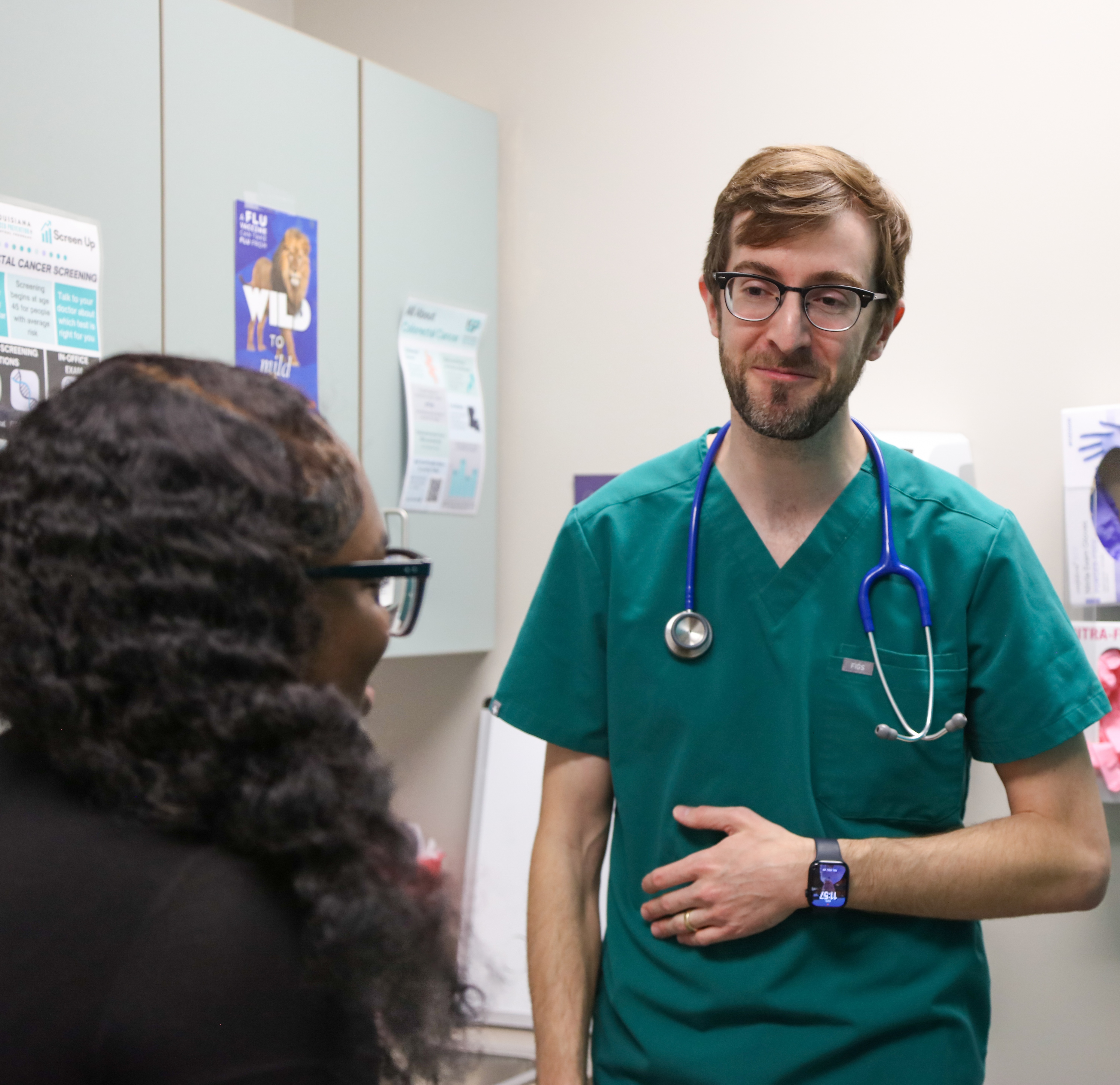Whole Health, Whole Life: A Holistic Approach to Food, Movement, and Health
At BCHS, we believe the foundation of lifelong health starts with what we eat and how we move. From a baby’s first bites to the nourishment and activity that sustain us in later years, food and movement aren’t just lifestyle choices -- they’re essential tools for healing, prevention, and vitality.
Starting this week, we’re launching a weekly social media series (stay tuned by following us on Facebook @BCHSnola and Instagram @bchsnola) to explore how simple shifts in nutrition and movement can support every stage of life. This blog introduces the key themes we’ll be sharing, designed for every patient, every age, every step of the way.
Food as Care —More Than Just a Meal 
We’ve long known that what we eat directly impacts how we feel, whether it's the energy we have throughout the day, our ability to focus, or how well we sleep at night. Further, nutrition is not just about general wellness; it’s increasingly being recognized as a powerful, evidence-based tool for treating, preventing, and managing a wide range of health conditions.
From chronic illnesses like diabetes and heart disease to short-term recovery after surgery or illness, food can play a crucial role in healing and resilience. Nutritional therapy is now part of many care plans, offering a non-invasive, natural complement to medical treatments. Whether you're helping a child grow and thrive, navigating a new diagnosis, or simply looking to age with strength and vitality, personalized nutrition guidance can meet you where you are.
What makes food such an impactful part of care is its flexibility; it can be tailored to suit your cultural preferences, budget, lifestyle, and health goals. And perhaps best of all, healthy food doesn’t have to be bland or restrictive. With the right support and information, meals can be nourishing, enjoyable, and deeply satisfying.
At BCHS, we believe food is more than fuel: it’s medicine, connection, and a foundation for lifelong well-being.
From First Bites to Full Plates — Supporting Health at Every Age
Nutritional needs don’t look the same at every life stage, but they all matter. We’re committed to helping patients thrive across the lifespan:
- Infants & Toddlers: Building healthy habits starts early. Focus on nutrient-rich, whole foods when introducing solids, and avoid added sugars and processed snacks. Encourage motor development with plenty of floor time, crawling, and active play that strengthens growing muscles.
- Children & Teens: Fuel growing bodies and minds with balanced meals and snacks that include fruits, vegetables, whole grains, and lean proteins. Get kids involved in meal prep to teach lifelong habits. Additionally, aim for at least 60 minutes of physical activity each day, whether it’s riding bikes, dancing, or playing sports.
- Adults: Healthy eating doesn’t have to be complicated. Plan meals around whole foods, limit ultra-processed options, and stay hydrated. Find movement that fits your schedule -- even short walks, stretching, or quick home workouts add up and support long-term health.
- Seniors: As we age, nutrient needs change. Focus on calcium-rich foods, fiber, and protein to support bone health and muscle maintenance. Keep moving with low-impact exercises like walking, swimming, or chair yoga to boost balance, flexibility, and energy levels.
Your needs evolve, and so should your approach to wellness. Every stage of life brings new opportunities to nourish your body and stay active in ways that feel right for you.
Our team can walk with you through all stages. While nutrition and movement needs change with time, our commitment to you doesn’t.
Keep It Simple — Eat Real, Whole Food
When it comes to food, simple is often best. It’s important to focus on whole, minimally processed foods that nourish the body without confusion or complexity. We emphasize:
- Local and seasonal produce (check out Crescent City Farmers Market and Second Harvest Mobile Markets – SNAP/EBT accepted at both!)
- Protein and whole grains (tinned fish in water or olive oil can be an affordable, healthy way to pack in extra protein!)
- Low-prep meal ideas using fresh or pantry staples (think throw it in the crock-pot and come home to a healthy meal!)
- Minimizing sugar intake (track how much you consume for a week -- most people don’t realize just how much they’re consuming). The Dietary Guidelines for Americans recommends limiting calories from added sugars to less than 10 percent of total calories per day, which would be 50 grams of added sugars per day based on a 2,000-calorie diet.
Whole food isn’t just a trend; it’s a return to what our bodies recognize and respond to best.
Movement Is Health, Not Just Exercise
You don’t need a gym membership or fancy gear to benefit from movement. What matters most is staying active in ways that are enjoyable and sustainable.
At BCHS, we encourage:
- Tummy time for babies, movement-based play for toddlers
- Youth fitness events, safe walking/biking, and/or school sports and activities
- Adult walking groups, dance classes, and workplace stretch breaks
- Senior-friendly strength and balance classes to support aging in place (check out Anew Fitness to find some local New Orleans classes!)
Movement isn’t one-size-fits-all. It’s about building routines that feel good, reduce stress, and support your physical and emotional health. Bonus points if you get in some safe sun exposure along with your movement! Early morning and late evening sun exposure can help increase vitamin D (which many Americans are deficient in) as well as support your body’s circadian rhythm, promote restorative sleep, and balance hormones.
Real Care for Real Life
We know that nutrition and movement are deeply influenced by our everyday realities—things like income, work schedules, housing, transportation, and caregiving responsibilities. That’s why our care is built around the lived experiences of our community. We recognize that many of our patients are doing their best while navigating all sorts of challenging circumstances.
Access to healthy food isn’t just about choosing vegetables over chips. It’s about whether there’s a grocery store nearby, whether you can afford fresh produce, whether you have time to cook after a long shift, and whether you have a safe space to prepare or even store food. Movement, too, can be limited by pain, fatigue, unsafe neighborhoods, or the simple fact that you're working multiple jobs and raising a family.
We understand those pressures. And instead of adding more to your plate, our goal is to ease the load. We want to help you figure out how nutrition and physical activity can be tools that enhance and support your life in ways that are flexible, sustainable, and adapted to your circumstances. Whether it's finding culturally familiar foods that nourish you, building small moments of movement into your day, or creating care plans that honor your time and responsibilities, we're here to partner with you, not prescribe unrealistic standards.
Lasting health doesn’t come from quick fixes or one-size-fits-all advice. It comes from care that’s rooted in respect, built on trust, and designed to work in the real world. That’s the kind of support we’re committed to providing at BCHS. Everyone deserves the chance to feel well and thrive.
